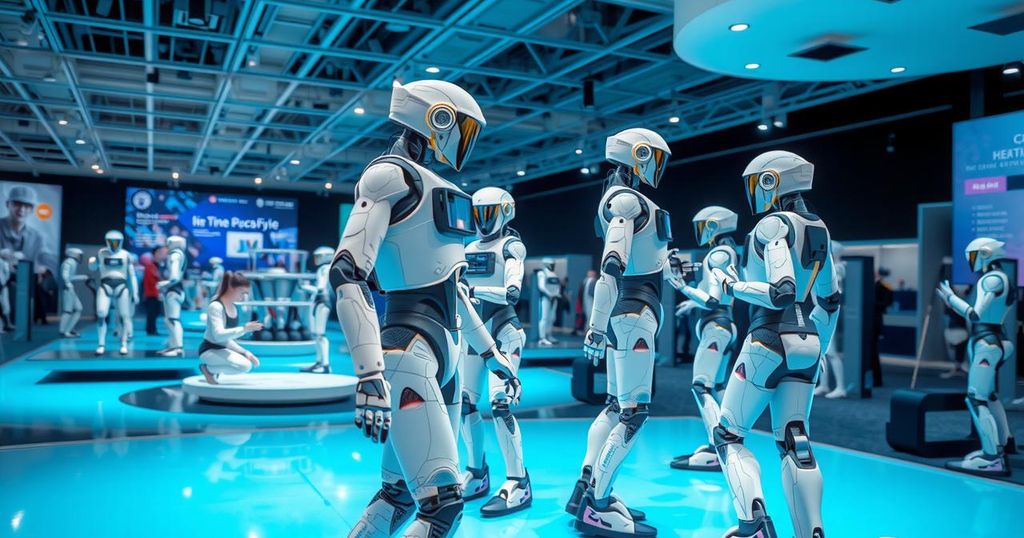AI
Tech
ADAM, AI, ARTIFICIAL INTELLIGENCE, ASIA, AUTOMOTIVE INDUSTRY, BEIJING, CHINA, DIGITAL TRANSFORMATION, INNOVATION, KAI - FU LEE, LI AUTO, LI XIANG, MEXICO, NORTH AMERICA, SINOVATION VENTURES, TECHNOLOGY, VENTURE CAPITAL, XI, XINHUA, ZHANG CHENLIN, ZHONGGUANCUN INTERNATIONAL INNOVATION CENTER
Amina Hassan
0 Comments
Artificial Intelligence: The Catalyst of High-Quality Growth in China
Artificial intelligence is becoming a driving force for high-quality growth in China. The 2025 Zhongguancun Forum highlighted its impact on smart manufacturing, new energy vehicles, and space exploration. Key figures emphasized AI’s role in enhancing productivity and achieving carbon neutrality goals, with significant advancements expected in the near future.
Artificial intelligence (AI) is transforming China’s economy by serving as a catalyst for high-quality growth. At the 2025 Zhongguancun Forum in Beijing, industry experts highlighted AI’s role in smart manufacturing, green energy, and even space exploration. CEO Kai-Fu Lee noted that 2025 marks significant advancements in AI application, with large models driving productivity revolutions as new technologies emerge.
A notable trend is the integration of AI with new energy vehicles (NEVs), crucial to China’s carbon neutrality goals. Li Auto’s demonstration showcased their autonomous driving, capable of lane changes, ramp exits, and obstacle avoidance, enhancing safety for urban drivers. CEO Li Xiang stated that the automotive industry is evolving into smart AI terminals, revolutionizing transportation.
The forum featured nearly 100 robots from 15 companies, illustrating the rapid advancements in humanoid robotics aimed at boosting productivity. One such robot, “Adam,” performed a captivating dance using advanced motion control, emphasizing its human-like capabilities, as explained by PNDbotics AI’s Anna Leung. Wang He of Beijing Galbot Co., Ltd. heralded a new era of productivity for humanoid robots, highlighting their ability to assist humans efficiently.
China’s government work report emphasizes the importance of integrating digital technology into manufacturing. It aims to support the wide application of AI and develop intelligent terminals and smart manufacturing equipment, including connected NEVs and robots. As China pursues its dual carbon objectives, AI is pivotal in areas like new energy integration and smart consumption, notes industry professionals.
For instance, AI significantly enhances smart grid management and stability, addressing challenges as renewable energy use increases, according to Ren Jingdong of the National Energy Administration. In space exploration, Wang Chi from the National Space Science Center suggested AI will be essential for intelligent spacecraft control systems, aiding missions to Mars and Jupiter. Liu Hangxin emphasized the advantage of using intelligent agents for safe exploration in extreme environments, reducing human risks.
The integration of artificial intelligence into various sectors of China’s economy is undeniably paving the way for high-quality growth and innovation. As AI technologies advance and converge with industries from automotive to space exploration, they promise to enhance productivity and sustainability. With government support, the continued evolution of AI will play a crucial role in achieving China’s ambitious carbon goals and technological leadership.
Original Source: www.womenofchina.cn




Post Comment